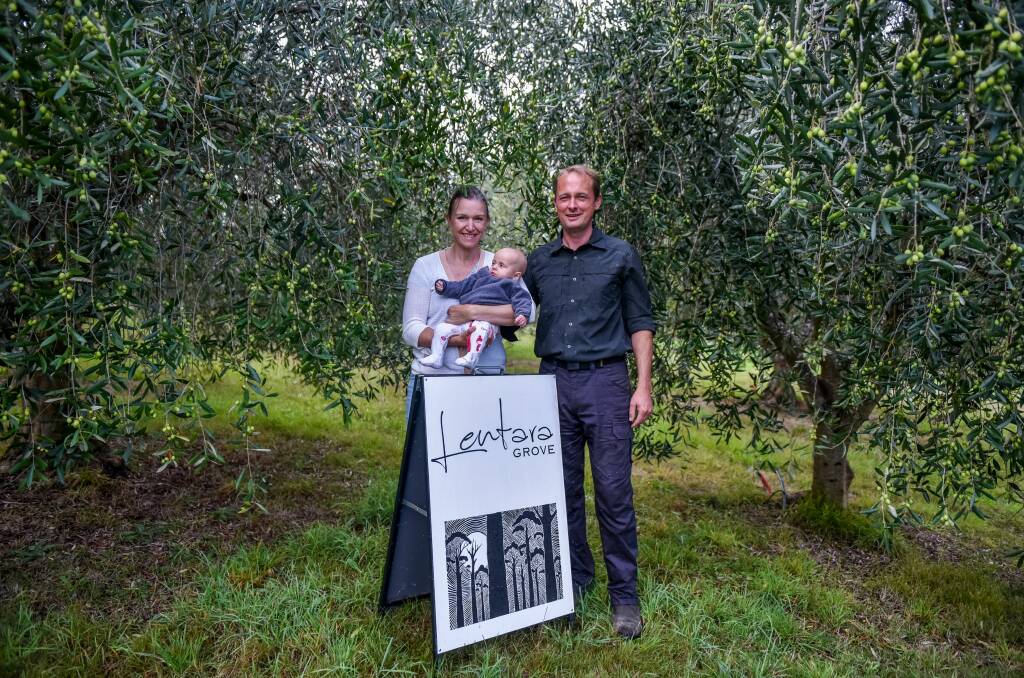
To most people olives are a salty delicacy found on a cheese board, but to Martin and Sophie Grace olives are life.
Subscribe now for unlimited access.
or signup to continue reading
In the next week, they will be harvesting their latest Lentana Grove olive crop at Exeter. The olives, grown from 23-year-old trees, will be turned into award-winning extra virgin olive oil that has gained several awards including best in show within its category at the Australian International Olive Awards.
Lentara Grove is one of 60 olive groves scattered across Tasmania, contributing to the 126,0000 tonnes of the state's yearly olive harvest that makes approximately 23,000 litres of oil.
Mr Grace said a majority of Tasmanian growers were small-scale, offering a boutique product.
The state's climate makes for a longer growing season with higher quality fruit, but yields are much lower than interstate.
"There is a lot of work that goes into making olive oil and while it is spiritually rewarding it isn't necessarily financially rewarding," Mr Grace said.
That is why the couple are branching out and diversifying, making the most of the opportunities in this space.
For example, they have started an agritourism venture with Off The Table Tasmania, offering select tours of their farm. They have teamed up to create an olive oil skin care range for use in visitor accommodation in Launceston. They have also recently planted 1200 pomegranate trees on their farm which, if successful, will make them the first pomegranate grower in the state.
"Part of our role as growers is also to educate people about the uses of olives, and show what good olive oil tastes like. Most of the oils on supermarket shelves are not good examples of quality olive oil," Mr Grace said.
"When we have people touring our farm they get an opportunity to come and try our products at the source. We explain to them how olives are grown, harvested and made into oil," he said.
"The drive for these tours comes from a desire for people to get back to nature and see how their food has providence. They are learning about what it takes to make a quality product."
Mr Grace said the plan for the pomegranate trees was to make a complementary product for their oil, such as a pomegranate vinegar.
These middle eastern berries are high in antioxidants, fibre, vitamins and minerals.
He said that olive oil also had a growing list of positive health benefits, from better heart health and digestion, to improvement of Alzheimer's.
The Olive Wellness Institute states that the consumption of 25 to 50 millilitres of Extra Virgin Olive Oil per day can be attributed to the prevention of coronary heart disease, diabetes, mood disorders, obesity and the reduction of overall cancer incidence and reversal of fatty liver disease.
The oil contains monosaturated "heart-healthy" fat.













